The common mistakes made in English by Spanish speakers are all too familiar to me. As a Brit in Barcelona, it has been something of a bumpy ride in terms of my own language learning.
But strangely enough, the common mistakes Spanish speakers make in English have really helped me to understand and learn Spanish (and Catalan) better... and have, of course, given me some laughs over the years too.
If you’re a Spanish speaker and don’t make any of the following mistakes then you are a language legend, a bilingual boffin, a grandmaster of the English language...the rest of you, get a pen and paper.
If you’re a speaker of another Latin language then the likelihood is that the information listed below will be applicable to you too.
Common mistakes made in English by Spanish speakers:
Overuse of how
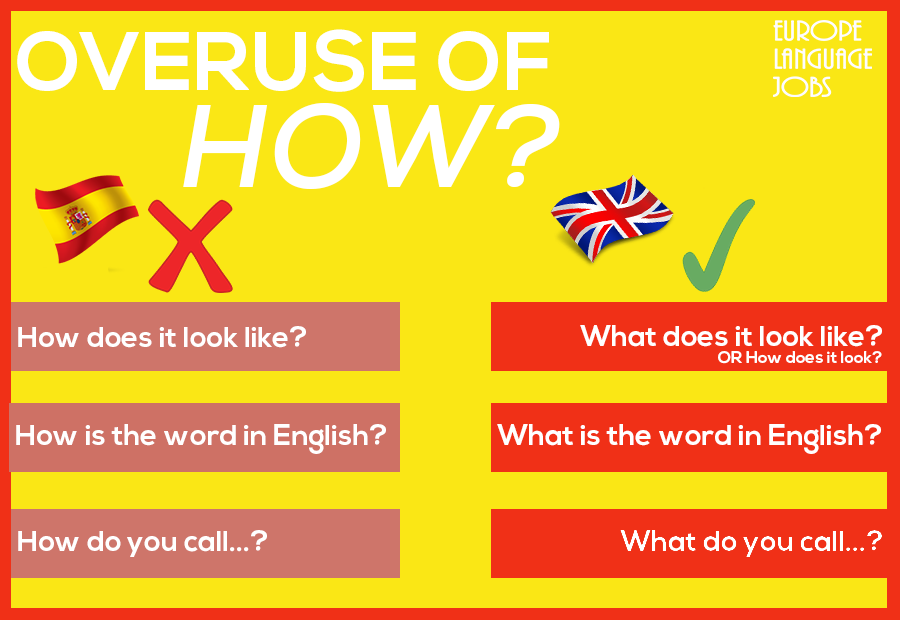
In Spanish cómo is a very useful word (especially if you want to say “I eat how I eat”) but in English how is not as handy as its Spanish counterpart.
There are many instances where you may well get the urge to say “how”. Well you need to resist that temptation and substitute it for what, as shown in the examples above.
Taking coffees

In English we have a coffee. Taking a coffee would result in very angry baristas.
But as common mistakes made in English go, there are much worse ones to make. There’s not really much more to say on this point... next!
Making and doing stuff
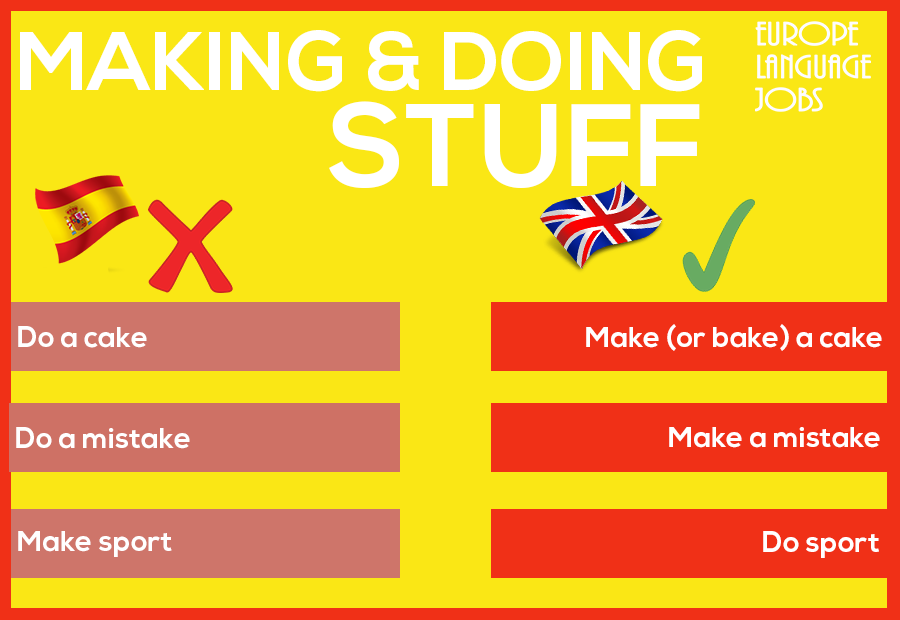
This is a really difficult concept to get your head around as a Spanish speaker, as the verb hacer covers both of these words in Spanish. Generally do is more of an action or job whereas make could be substituted for verbs, such as create or produce, to describe the result of the action.
I am here since

Unless your name is Here Since (is that German?), then you should never say “I am here since”. Again, it’s not the worst mistakes that Spanish speakers make in English but one to be aware of. There is just so much to language learning, make sure to take a look at 50 fascinating language facts you never knew when you finish this article!
Explain me, say me, listen me!
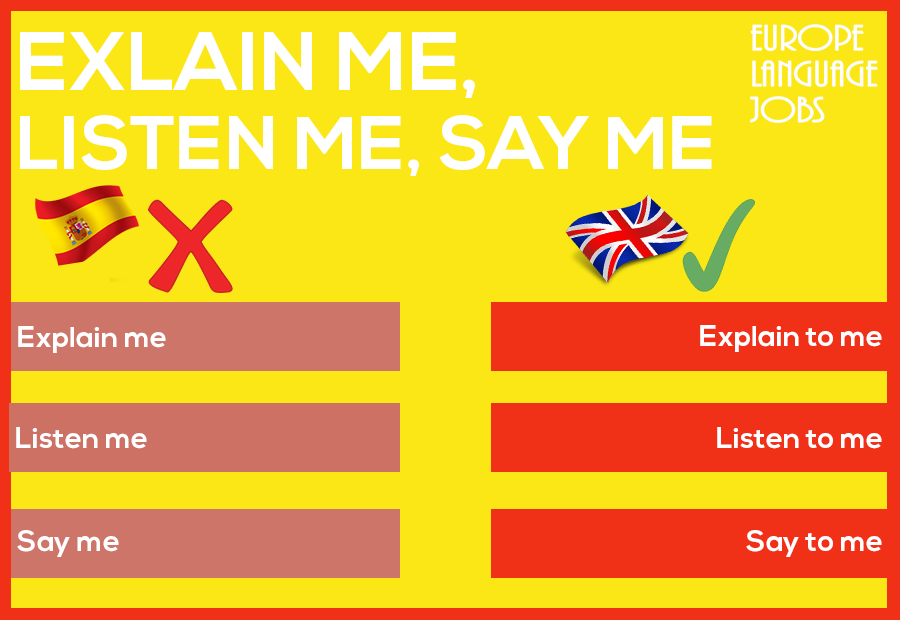
This is another tough one. Most verbs don’t need a “to” between them and the pronoun but some do. Therefore it’s important that you know the main ones that do.
Countable and uncountable nouns
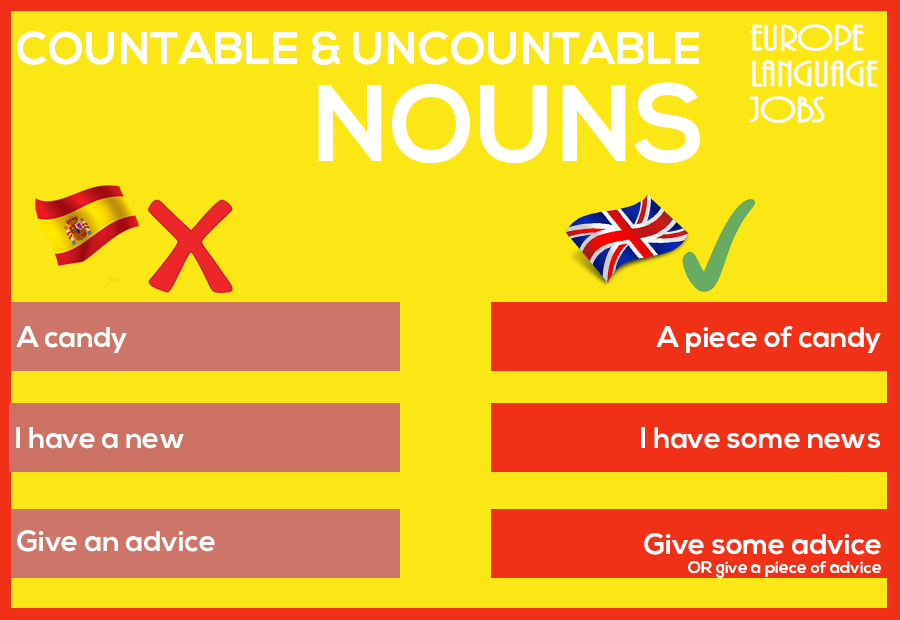
News is a particularly deceptive word as it ends in an “s”, which of course looks like a plural – it’s not. Well, it kind of is but don’t think of it that way.
Being agree
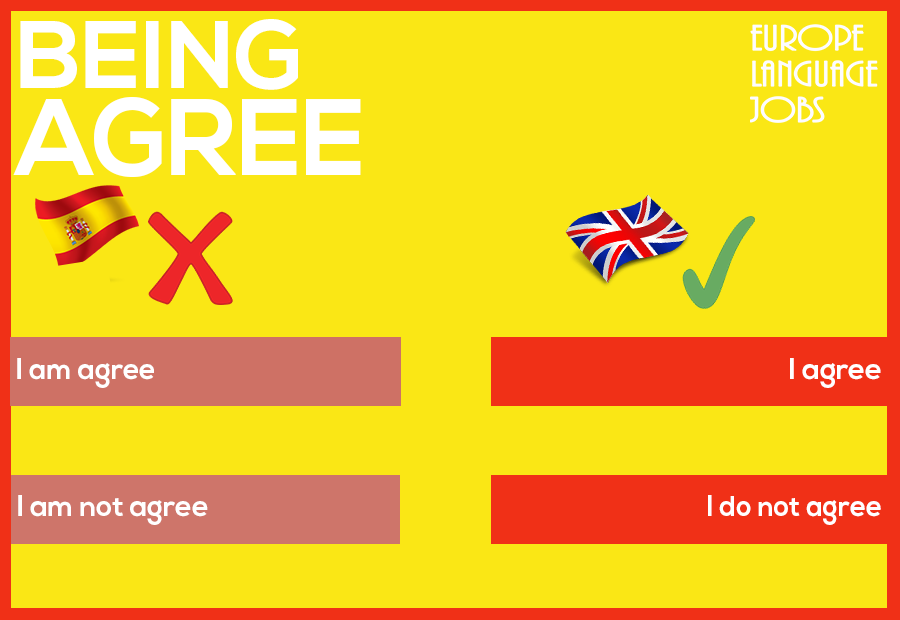
Unless a “gree” is some kind of title (or creature) that you are claiming to be, you should not be saying, "I am agree".
Think of agreeing as more of an action that you do (here we go with make and do again...) rather than a state that you are in.
Having years
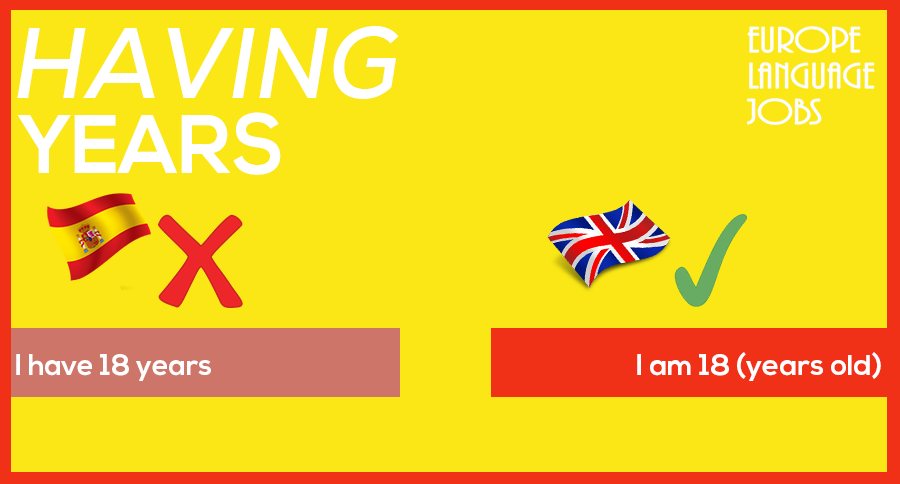
Even worse is “I have 18 years old’’. This is a structure that you learn fairly early on so it’s usually a mistake made by beginners but it still slips out of the most accomplished English speakers... I even said it myself once, and I’m British.
Story and history

History is what has happened in the past and a subject at school. It is an abstract and uncountable noun whereas a story is one event or account, making it a concrete and countable noun.
Fun and funny
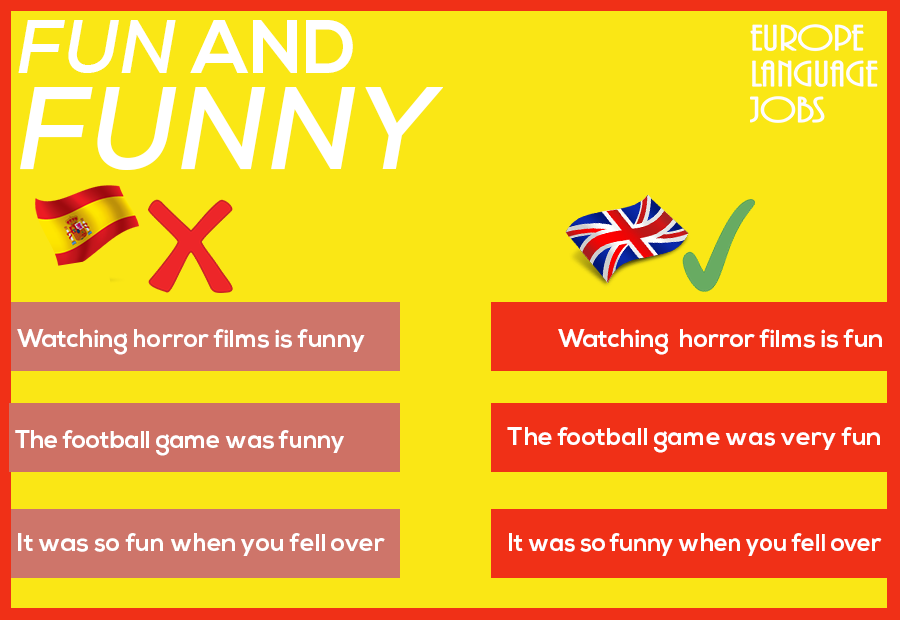
Most Spanish speakers seem to think they have fun and funny nailed. Fun is the noun and funny the adjectival form. No, stop! Fun is the noun – yes. However, it is also an adjective. In fact, if in doubt, just use fun because it’s usually correct and sounds less odd if you use it strangely.
Funny is a very specific adjective and is only for comedy and things that provoke laughter, so horror films and football are very rarely funny but often fun.
I didn’t went and She doesn’t goes
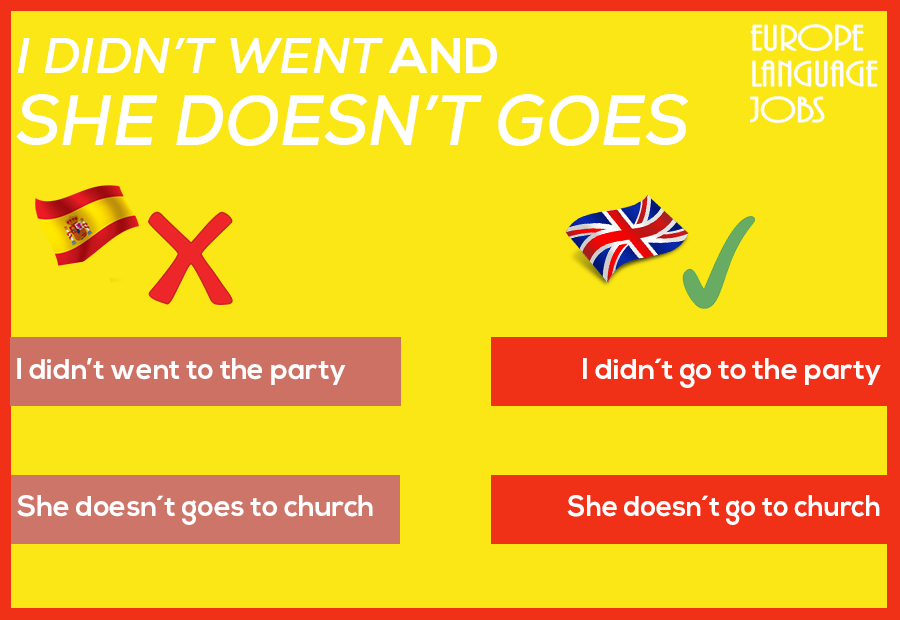
This is one of the most common mistakes that Spanish speakers make in English and one of the most difficult to comprehend. When we use the verb, to do, in this context it is known as an auxiliary verb (or a helping verb) which establishes the tense or state of the sentence.
This means you don’t have to alter the verb from its infinitive form.
Use of -ed and -ing
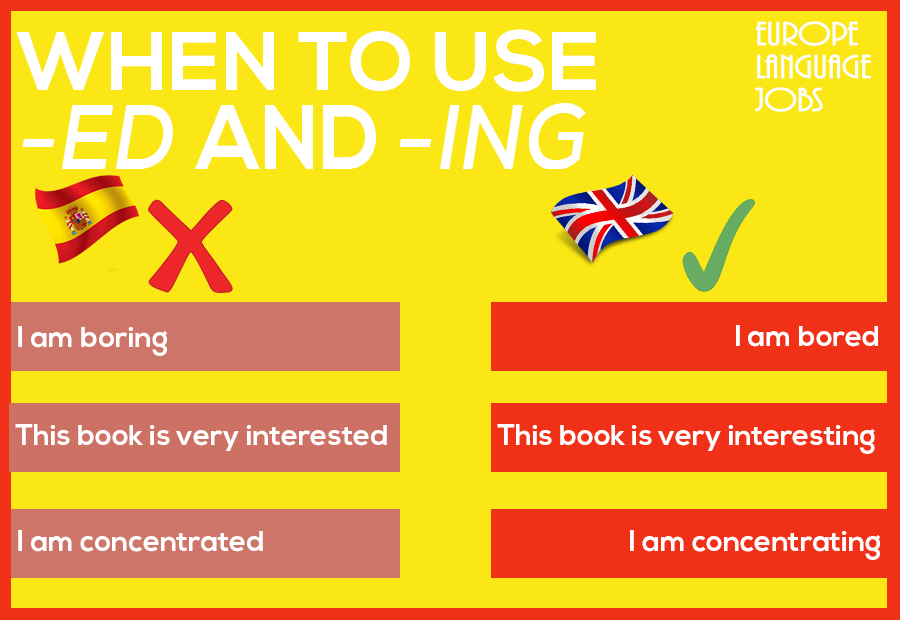
The rule is –ed is generally a temporary state. If you are bored then it will pass, but a boring person is (generally) boring forever.
A film, a book or an activity can be interesting or boring, even if this is just an opinion. Being influenced by the entertainment value of the book or film, you become interested or bored.
Another strange example is concentrated and concentrating. Generally a person is not concentrated. This is an adjective more associated with liquid dilution. "I am concentrating"and "I cannot concentrate" are regularly structures that you can use.
So please, don’t be boring...
So how good is your English? Take our 'How good is your English' test here. To finish up, it wouldn’t be fair to just draw attention to the common mistakes Spanish speakers make in English. Here are the most common mistakes made by English people learning Spanish.
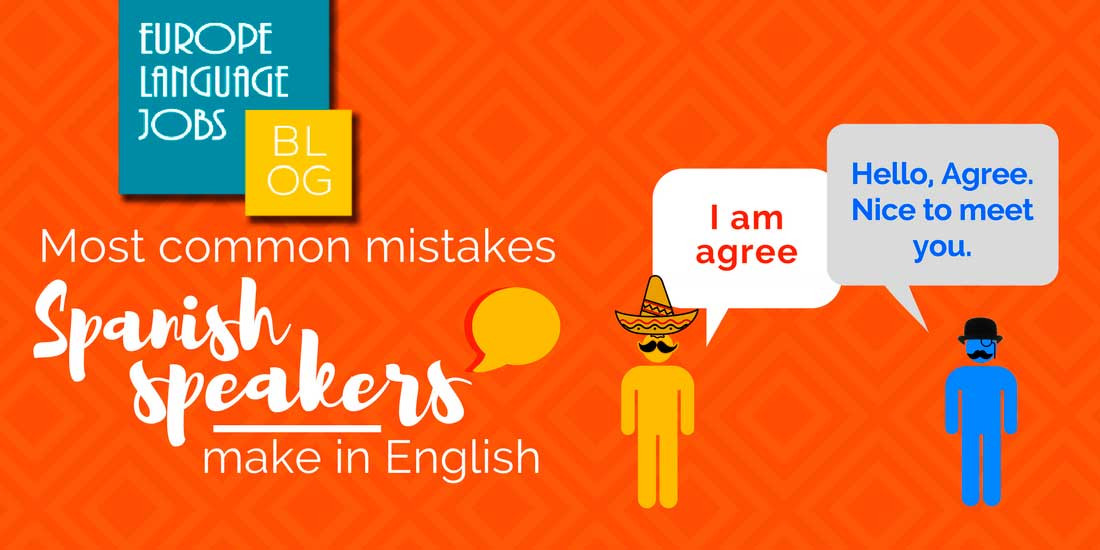

















.png)

María Diaz 1y ago
I find these data extremely interesting, they are key to having better communication with others, knowing how to express ourselves correctly helps to avoid conflicts or misunderstandings.
I find these data extremely interesting, they are key to having better communication with others, knowing how to express ourselves correctly helps to avoid conflicts or misunderstandings.